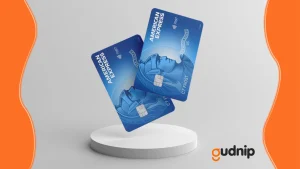How to Get Loan With Bad Credit can feel like a challenge, but it’s definitely not impossible. Even with a low credit score, there are ways to secure funding and take control of your financial situation. The key is understanding your options and knowing how to present yourself as a responsible borrower.
From personal and secured loans to alternative lending options, there are solutions designed for people rebuilding their credit. Many lenders now focus on flexibility and transparency, making it easier to find fair terms that fit your needs. With the right approach, you can access the support you need without feeling stuck.
If you’re ready to learn how to navigate the loan process and improve your chances of approval, keep reading. The next sections break down everything you need to know to borrow smartly — even with bad credit.
Understanding Bad Credit
Understanding bad credit is important for anyone seeking a loan. Bad credit often results from late payments, high amounts of debt, or even bankruptcy. When lenders see a low credit score, they may see you as a higher risk for repayment. This can make it difficult to get a loan.
Bad credit is usually represented by a credit score below 580. Scores can vary depending on the scoring model, but anything below this threshold can limit your options. Knowing your credit score helps you understand where you stand and what steps you need to take.
Improving your credit score can open doors to better loan options. Making on-time payments and reducing debt are effective ways to raise your score over time. If you are aware of your credit situation, you can take action to turn it around.
Types of Loans Available for Bad Credit
There are several types of loans available for people with bad credit. One option is a personal loan, which can be used for various purposes like paying bills or making emergency purchases. Many lenders offer personal loans with fewer credit requirements, making them accessible for those with lower scores.
Another common type of loan is a secured loan. This type requires you to use an asset, like a car or savings account, as collateral. Since this reduces the lender’s risk, it can be easier to qualify for a secured loan even with bad credit.
Lastly, payday loans are a quick option but should be approached with caution. These loans provide cash until your next paycheck arrives, but they often come with high fees and interest rates. While they can help in a pinch, it’s important to repay them quickly to avoid falling into a debt cycle.
How to Improve Your Credit Score Quickly
Improving your credit score quickly is possible with some simple steps. First, check your credit report for any errors. Sometimes, mistakes can lower your score. If you find errors, dispute them with the credit bureau to have them corrected. This could raise your score almost immediately.
Another effective way is to pay down your outstanding debts. Focus on credit cards and loans with high balances. Reducing these amounts will lower your credit utilization ratio, which can positively impact your score. Aim to keep your usage below 30% of your total credit limit.
Finally, make sure to pay your bills on time. Setting up automatic payments or reminders can help you stay on track. Even one missed payment can harm your score, so consistency is key. Showing lenders that you manage your payments well can quickly improve your credit standing.
Finding Lenders Who Work with Bad Credit

Finding lenders who work with bad credit can be challenging, but it is not impossible. Start by researching online for lenders that specifically advertise loans for people with low credit scores. These lenders understand the unique situations faced by borrowers with bad credit and may offer suitable options.
Another great avenue is to seek recommendations from friends or family. They may know of lenders who provide flexible terms for people in your situation. Additionally, local credit unions often focus on helping their community members, so check if there’s one near you.
Finally, working with a credit counselor can be beneficial. These professionals can help connect you with lenders and guide you in improving your credit health. They have experience navigating the loan process for those with bad credit, making it easier for you to find the support you need.
Tips for a Successful Loan Application
To make your loan application successful, first gather all necessary documents. This includes proof of income, bank statements, and identification. Having everything ready will help speed up the process and show lenders that you are prepared and serious.
Next, be honest about your financial situation. Clearly explain why your credit score is low and provide any steps you are taking to improve it. Lenders appreciate transparency, and this might help build trust and improve your chances.
Finally, don’t hesitate to ask questions. If you don’t understand parts of the application or the loan terms, seek clarification. Being informed and engaged shows lenders that you take the process seriously and are fully committed to your financial responsibilities.
Common Mistakes to Avoid When Applying
One common mistake when applying for a loan is not checking your credit report beforehand. Knowing your credit score can help you understand where you stand and what lenders may expect. If there are errors on your report, you need to address these before applying to improve your chances of approval.
Another mistake is applying for too many loans at once. Each application can slightly lower your credit score, making it seem riskier to lenders. Focus on finding a few lenders that fit your needs instead of casting a wide net.
Lastly, many borrowers fail to read the loan terms carefully. It’s crucial to understand interest rates, fees, and repayment terms. Overlooking these details can lead to unexpected costs and issues later on, so take your time to review everything thoroughly.
Alternatives to Traditional Loans
If traditional loans are not an option, consider peer-to-peer lending. This method connects borrowers directly with individual investors. Since it often involves less strict credit checks, it can be a great alternative for those with bad credit, and you may find better interest rates than with other options.
Another alternative is a credit card for bad credit. Some card issuers offer secured credit cards designed for individuals with low credit scores. These cards require a cash deposit as collateral, helping you build your credit over time while providing you with access to funds.
Lastly, explore community resources such as microloans. These loans are typically smaller amounts offered by nonprofit organizations or local lenders. They often focus on helping individuals with bad credit, allowing you to borrow money for essential needs while supporting local initiatives.





